Video
Sign up for our newsletter
We summarize the week's scientific breakthroughs every Thursday.
-
 Climate
ClimateMalin Pinsky seeks to explain how climate change alters ocean life
As global temperatures rise, Malin Pinsky’s research attempts to understand how marine ecosystems are changing and why.
-
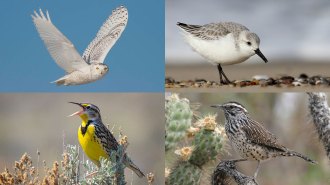 Life
LifeWe’ve lost 3 billion birds since 1970 in North America
Scientists estimated the change in total number of individual birds since 1970. They found profound losses spread among rare and common birds alike.
-
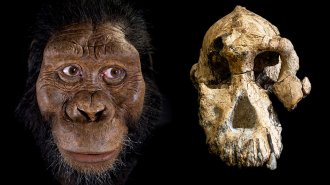 Humans
HumansA 3.8-million-year-old skull reveals the face of Lucy’s possible ancestors
A fossilized hominid skull found in an Ethiopian desert illuminates the earliest-known Australopithecus species.
By Bruce Bower -
 Anthropology
AnthropologyA tiny skull fossil suggests primate brain areas evolved separately
Digital reconstruction of a fossilized primate skull reveals that odor and vision areas developed independently starting 20 million years ago or more.
By Bruce Bower -
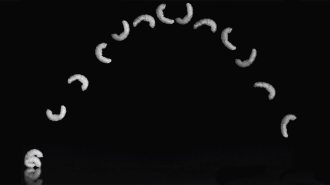 Life
LifeHow these tiny insect larvae leap without legs
High-speed filming reveals how a blob of an insect can leap more efficiently than it crawls.
By Susan Milius -
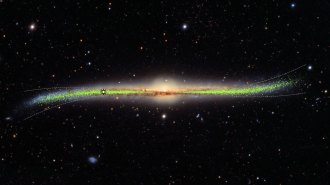 Astronomy
AstronomyA 3-D map of stars reveals the Milky Way’s warped shape
Our galaxy flaunts its curves in a chart of thousands of stars called Cepheids.
-
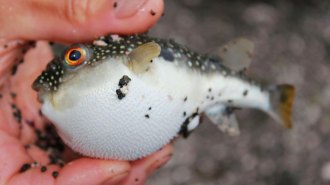 Animals
AnimalsThere’s more to pufferfish than that goofy spiked balloon
Three odd things about pufferfishes: how they mate, how they bite and what’s up with no fish scales?
By Susan Milius -
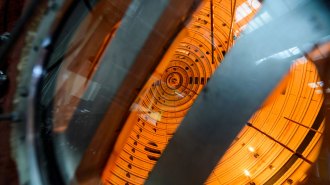 Astronomy
AstronomyIn a first, physicists re-created the sun’s spiraling solar wind in a lab
Some of the sun’s fundamental physics have been re-created with plasma inside a vacuum chamber
-
 Materials Science
Materials SciencePermanent liquid magnets have now been created in the lab
Magnets that generate persistent magnetic fields are usually solid. But new little bar magnets have the mechanical properties of liquids.
-
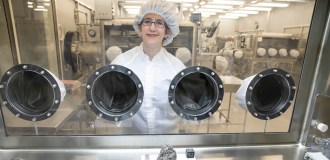 Planetary Science
Planetary ScienceHow NASA has kept Apollo moon rocks safe from contamination for 50 years
NASA wouldn’t let our reporter touch the Apollo moon rocks. Here’s why that’s a good thing.
-
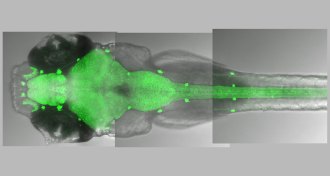 Neuroscience
NeuroscienceBoth fish and humans have REM-like sleep
Sleeping zebrafish have brain and body activity similar to snoozing mammals, suggesting that sleep evolved at least 450 million years ago.
-
 Health & Medicine
Health & MedicineVision cells can pull double duty in the brain, detecting both color and shape
Neurons in a brain area that handles vision fire in response to more than one aspect of an object, countering earlier ideas, a study in monkeys finds.